Möchtest du alles über Massentierhaltung wissen? Dann bist du hier genau richtig! Kühe und Schweine auf saftigen, grünen Wiesen? Schön wär's. Denn auch, wenn diese bäuerliche Idylle zwar noch auf vielen Produktverpackungen zu sehen sein mag, ist sie bei den meisten landwirtschaftlichen Betrieben fernab jeglicher Realität.
Die Tiere die zum Beispiel Fleisch, Milch oder Eier geben, sind in der Massentierhaltung heutzutage leider nur noch ausgebeutete Hochleistungsmaschinen.
In diesem Artikel möchte ich dir jetzt alles Wissenswerte über die Massentierhaltung vorstellen. Von der Definition, über Zahlen und Fakten, Ursachen und Folgen, bis hin zu den Dingen, die wir im Alltag gegen dieses Problem und für die Tiere tun können. Auf geht's!
Here you can find a short overview in advance:
Definition: Was ist Massentierhaltung?
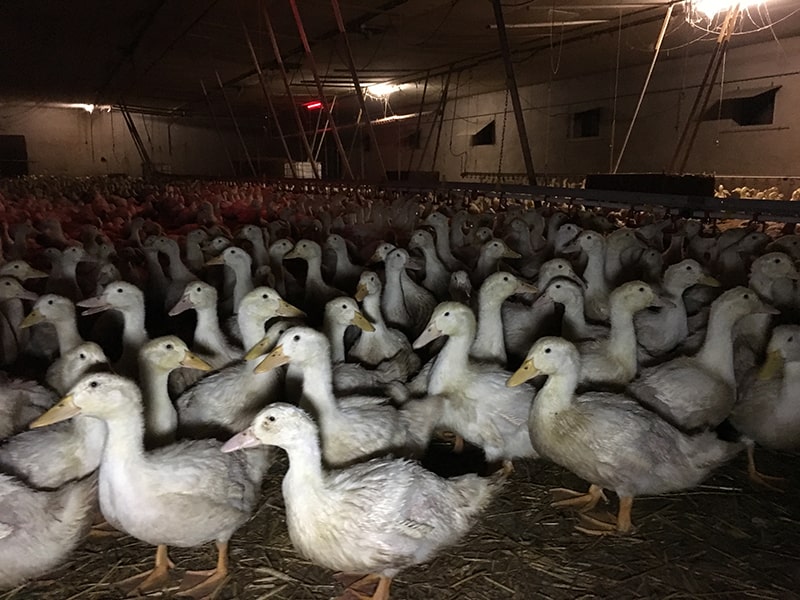
Wirtschaftslexika definieren den Begriff folgendermaßen: Factory Farming, auch intensive Tierhaltung oder Intensivtierhaltung genannt, ist die massenhafte Haltung von Tieren unter beengenden, belastenden und meist nicht artgerechten Umständen.
Das Ziel ist es mit möglichst geringen Kosten möglichst viele tierische Produkte herzustellen. Sinn und Zweck ist unter anderem die industrielle Fleisch-, Milch-, Eier-, Leder- und Fellproduktion.
In unserer Gesellschaft wird die Massentierhaltung tendenziell eher abgelehnt. Durch das Konsumverhalten jedes Einzelnen wird diese jedoch massiv unterstützt und eben auch – im Gegensatz zu den Tieren – am Leben gehalten.
Notice: Von Beteiligten der Massentierhaltung werden bevorzugt euphemistische Begriffe wie „Intensivtierhaltung“ oder „moderne Tierhaltung“ verwendet. Darüber, ob diese Form der Haltung wirklich modern ist oder modern sein sollte, kannst du dir hier selbst ein Bild machen.
What animals are being mass farmed in the first place?
Bilder von Kühen, Schweinen oder Hühnern in Massentierhaltung haben wir sicher alle schon einmal gesehen. Doch welche Tiere werden eigentlich grundsätzlich auf diese Weise gehalten?
Here a kleiner Überblick:
- Cows (Dairy cows, beef cattle and veal calves)
- Pigs (fattening pigs and breeding sows)
- Sheep (e.g. for meat, milk and wool)
- Chickens (broilers and laying hens)
- Ducks (e.g. for meat and clothing)
- Geese (e.g. for down and meat)
- Turkeys (e.g. fattening turkey)
- Minks, Foxes & Chinchillas (e.g. for furs)
- Fish (Aquaculture and "wild")
- Crustaceans (e.g. crabs, lobsters and shrimps)
- Rabbit (e.g. for meat, fur and angora wool, as laboratory animals and pets).
- Bees (honey bees)
- …
Why factory farming is a problem and subject to criticism
Die Problematik und berechtigte Kritik beruht vor allem auf ethischen und ökologischen Säulen.
Here are some Disadvantages of this form of intensive animal husbandry:
- Cramped spaces and cages without freedom of movement
- Keeping in stables without daylight
- Separation from dams directly after birth
- Life expectancy of animals is very short
- Animal mistreatment (e.g. beak trimming, tail trimming or Chick Shredding)
- cruelty to animals (Tierrechte werden missachtet)
- Treatment with antibiotics and residues in meat
- Overbreeding
- Inadequate controls
- Environmental problems as a result
Raising animals in factory farms at top speed is not in line with human values. Animals are emotional beings, so wie wir selbst. In der Turbo-Haltung können sie weder unter ihrer natürlichen Umgebung leben, noch ihren ursprünglichen Instinkten follow up
Tip: There are certain Tools of factory farming (z. B. Saugentwöhner und Schnabelkürzungszangen), mit denen die Tiere an die Industrie angepasst werden. Im verlinkten Beitrag stelle ich sie dir vor, sodass du dir selbst ein Bild davon machen kannst, ob das richtig ist.
Why do people still keep animals in factory farms?
Trotz der vielen Probleme muss es ja auch irgendwo einen Sinn und Zweck der Massentierhaltung geben, oder? Damit das nicht untergeht, findest du hier die wenigen Advantages der intensiven Tierhaltung:
- Cost benefits for farmers: Those who keep a lot of livestock on one area can benefit mainly through automation of feeding but also through volume discounts on feed.
- More animal foods: Inexpensive way can produce food in high demand very quickly.
- Kostenvorteile für Verbraucher:innen: Von den Kostenersparnissen der Mastbetreiber profitieren auch die Konsumenten. Fleisch, Eier und Milch sind dann beispielsweise sehr billig.
Es mag günstiger sein, doch den Preisausgleich zahlen schlussendlich vor allem die Tiere. Und auch unsere Umwelt und somit wir Menschen selbst haben mit schwere Folgen zu kämpfen.
Facts & figures on factory farming
Um ein Verständnis für den Umfang der Problematik zu bekommen, sind Statistiken über die Massentierhaltung von ungeheurer Wichtigkeit. Hier sind passend dazu einige Fakten:
- In der Massentierhaltung sterben allein in Deutschland etwa 760 Mio. Tiere pro Jahr.1
- Jährlich landen etwa 77,4 Millionen Tonnen Fleisch im Abfall. Für die Lebensmittelverschwendung müssen mehr als 18 Milliarden Tiere sterben.2
- Für die Produktion von einem Kilogramm Rindfleisch werden 15.415 Liter Wasser needed.3
- 540 Tonnen Antibiotika wurden im Jahr 2022 alleine in Deutschland in der landwirtschaftlichen Tierhaltung eingesetzt.4
- About 60 Prozent der Ackerfläche in Deutschland werden zum Anbau von Viehfutter und nicht zur direkten Nahrungsmittelerzeugung verwendet.5
Tip: Weitere aussagekräftige Fakten findest du übrigens auch in den Beiträgen Veganism statistics and Vegetarianism statistics.
Ursachen: Warum gibt es Massentierhaltung?
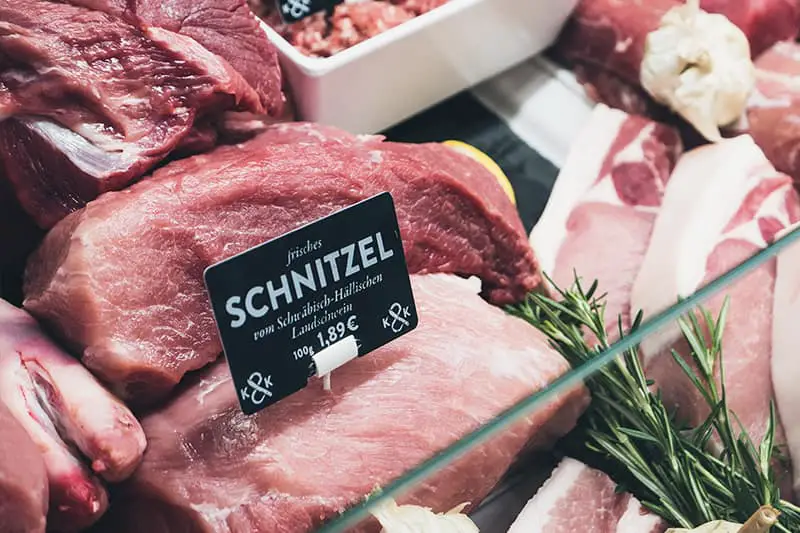
Im Grunde sind die Ursachen für die Massentierhaltung recht einfach erklärt. Logischerweise gehen sie natürlich zum Teil auch mit den bereits genannten Vorteilen einher.
Hier sind eine Gründe für die Existenz der Tierzucht in Höchstgeschwindigkeit:
- Profit orientation of the economy: Wenn es eine – im Regelfall auch noch legale – Möglichkeit dazu gibt, Fleisch möglichst billig zu produzieren, dann wird sie genutzt. Das kann man den Betreiber:innen von Mastställen grundsätzlich gar nicht übel nehmen. Doch schlussendlich ist es diese Profitorientierung, die für das enorme Tierleid in der Massentierhaltung sorgt.
- Global population growth: Das globale Bevölkerungswachstum ist rasant. Wenn die Weltbevölkerung jedes Jahr um über 65 Millionen Menschen wächst6, steigt automatisch auch der weltweite Bedarf an Nahrungsmitteln wie Fleisch, Milch oder Eiern.
- Increasing meat consumption: Der Bedarf an Fleisch nimmt auch zu, weil das Interesse an Fleischprodukten im bevölkerungsreichen, asiatischen Raum (z.B. in China und Indien) wächst. Indien war eigentlich immer das Land der Vegetarier:innen – doch nun lässt man sich vom Vorbild der Industriestaaten zum Fleischkonsum verleiten.7
- High interest in leather & fur products: Nerze, Füchse & Chinchillas sind eigentlich Wildtiere. Doch gerade sie werden in Massentierhaltung gezüchtet, um die Nachfrage nach Pelzkleidung zu decken. Und Kühe werden beispielsweise auch für die Lederproduktion gezüchtet.
- Demand for foods with animal components: Klassische Milch, Eier oder Käse-Sorten werden mit tierischen Zutaten hergestellt. Und auch für Cornflakes, Joghurts oder Parmesankäse wird häufig tierische Gelatine genutzt. (siehe auch Foods that are surprisingly not vegetarian and vegan)
Auswirkungen: Welche Folgen hat die Massentierhaltung?
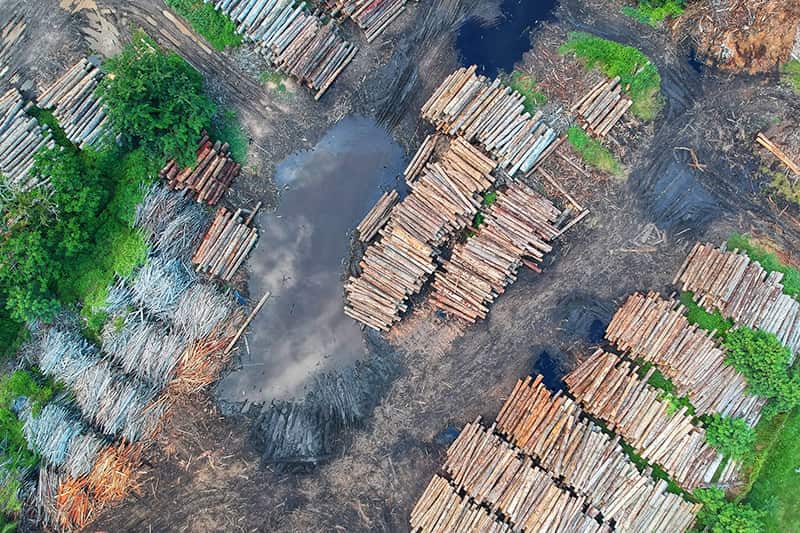
Von der Definition über die Problematik und ihre Fakten bis hin zu den Ursachen haben wir die Massentierhaltung nun schon etwas genauer kennengelernt. Doch inwiefern wirkt sich diese Form der Tierhaltung nun auf Tiere, Umwelt und uns Menschen aus?
Consequences for wildlife
First, let me give you a picture of the impact on wildlife. Here are some examples of corresponding consequences:
- Diseases: Massenställe und Legebatterien sind Sprungbrett für Krankheiten wie Rinderwahnsinn, die Vogelgrippe oder die Schweinepest. Bei der engen und unhygienischen Haltung in den eigenen Exkrementen ist es wenig verwunderlich, dass Betriebe einen hohen Verbrauch von Antibiotika haben.
- Physical pain: Schweinen werden bei lebendigem Leib die Ringelschwänze abgetrennt und die Zähne geschliffen. Bei Hühnern sind das sogenannte Schnäbelkürzen und das Schreddern männlicher Küken leider eine gängige Praxis. Die Massentierhaltung bedeutet vor allem körperliches Leid – doch dabei bleibt es nicht.
- Mental suffering: Tiere sind fühlende Lebewesen, wie wir Menschen auch. Wer einmal die Reaktion einer Mutterkuh gesehen hat, wenn man ihr direkt nach der Geburt das Kälbchen wegnimmt, vergisst das nicht.
- Self-injury: Behavioral disorders such as cannibalism are unfortunately commonplace in the stressful conditions of factory farming. For example, pigs nibble each other's ears or chickens peck each other to the bone.
- Species extinction: Die Folgen der Massentierhaltung betreffen nicht nur die Tiere in den zu engen Käfigen selbst. Im Grunde leidet schlussendlich der Großteil aller Tiere auf der ganzen Welt darunter. Zum Beispiel, indem der Lebensraum Regenwald weichen muss, um Viehweiden und Ackerflächen Platz zu machen.
Consequences for the environment
Factory farming also affects our environment in a very special way. Here you can find some examples of its ecological consequences:
- Deforestation of the (rain) forests: Bauern und Bäuerinnen müssen proteinreiches Tierfutter (vor allem gentechnisch-veränderte Sojabohnen) importieren, weil ihr eigener Anbau in der Regel weder die ausreichenden Mengen, noch die benötigten Nährstoffe liefert. Für den Anbau von Soja wird in Südamerika zum Beispiel der Amazonas-Regenwald abgeholzt. Mehr darüber erfährst du im Beitrag über die Deforestation.
- Global Warming: Factory farming makes a decisive contribution to the Climate Change bei. Sowohl Tiertransporte, Haltung und Schlachtung, als auch die Kühe selbst (Methan) stoßen Treibhausgase aus. Die Erderwärmung resultiert wiederum in zunehmende Katastrophen wie Waldbrände, die wiederum ein beschleunigtes Artensterben zur Folge haben.
- Soil degradation: The Manure from factory farming fördert zwar kurzfristig die Fruchtfolge, doch laugt langfristig die Böden aus. Pestizide, Düngemittel, Nitrate und Phosphate, die Mittel aus der Landwirtschaft, verschwinden nicht einfach. Beispielsweise werden dadurch Böden und anliegende Flüsse vergiftet.
- Water scarcity: If a kilogram of beef requires a total of 15,415 liters of water (e.g. growing feed, drinking or cleaning stalls), then this naturally has a decisive impact on the supply of drinking water, especially in rather dry regions. Learn more in the article about Water Shortage.
Consequences for us humans
Natürlich hat die Massentierhaltung auch für uns Menschen sowohl ökonomische als auch gesundheitliche Folgen. Hier auch dazu einige Beispiele:
- Antibiotics: Antibiotikaresistente Keime wurden in fast allen Putenfleisch-Proben in Discountern festgestellt. Eine Folge des Verzehrs für den menschlichen Körper ist, dass die Wirkung der Einnahme von Antibiotika nachlässt, wenn man sie braucht.
- Water scarcity: Mehr als zwei Drittel unseres Grundwassers sind mit Nitrat aus der Landwirtschaft belastet.8 Besonders Menschen in trockenen Regionen müssen unter der zunehmenden Trinkwasserknappheit leiden. Zum Beispiel, wenn im warmen Südamerika Felder mit späterem Tierfutter bewässert werden müssen.
- Manure transports: Die Massentierhaltung produziert deutlich mehr Gülle, als die Betriebe zum Düngen ihrer Felder nutzen können. Dadurch entstehen zusätzliche Kosten für den Abtransport und die Entsorgung.
- Odors: Of course, the odors associated with factory farming are also a burden on the surrounding area. For example, regional tourism is adversely affected as a result.
- Mental stress: Already the sight of cruelty to animals auf dem Fernsehbildschirm treibt vielen Menschen die Tränen in die Augen. Die Arbeit in riesigen Mastbetrieben, in denen möglichst billig möglichst viele tierische Lebensmittel erzeugt werden müssen, verdrängt man aber auch als Mitarbeiter:innen nicht so einfach. Die psychische Belastung ist extrem hoch.
Lösungen: Was kann man im Alltag gegen Massentierhaltung tun?

Genauso nachvollziehbar wie die Ursachen, sind im Grunde auch die Lösungen im Kampf für einen artgerechten und fairen Umgang mit Tieren. Hier sind einige Lösungsansätze, mit denen du in deinem Alltag jeden Tag ein Statement gegen die Massentierhaltung setzen simply by following your heart.
Read books
Nicht nur durch krasse Bilder in Dokumentationen, sondern auch durch das Lesen von Büchern über Tiere und ihre Haltung kannst du dich und schlussendlich auch andere über die Massentierhaltung aufklären und ihr entgegenwirken.
Hier sind einige Bücher, die du unbedingt lesen solltest:
- Das Schweinesystem* – Wie Tiere gequält, Bauern in den Ruin getrieben und Verbraucher getäuscht werden, von Matthias Wolfschmidt.
- Die Wegwerfkuh* – Wie unsere Landwirtschaft Tiere verheizt, Bauern ruiniert, Ressourcen verschwendet und was wir dagegen tun können, von Tanja Busse.
- Eat animals* von Jonathan Safran Foer.
- Peace Food* – Wie der Verzicht auf Fleisch und Milch Körper und Seele heilt, von Rüdiger Dahlke.
- Tiere denken* – Vom Recht der Tiere und den Grenzen des Menschen, von Richard David Precht.
- Die Seele der Tiere* – Gesichter. Gefühle. Geschichten, von Sabine Remy-Schwabenthan und Walter Schels.
Reduce or stop meat consumption
Wenn du lieber der Massenindustrie von Fleisch und nicht den Tieren selbst wehtun möchtest, dann ist der Fleischverzicht das beste Mittel dafür. Im Beitrag „Vegetarier werden“ you get the best tips for it!
Generally avoid animal ingredients in food
Mit einem bewussten Fleischkonsum lässt sich schon viel bewegen. Doch wenn du grundsätzlich auf tierische Lebensmittel verzichtest, ist dein Impact im Kampf für eine faire Tierhaltung noch größer.
Ich habe zum Beispiel die klassische Kuhmilch durch Hafermilch ersetzt – und mir fehlt im doppeldeutigen Sinne absolut nichts. Genauso genieße ich heute veganen Käse (auf Mandelbasis) und koche mir Soße mit veganer Soja-Sahne.
At Typical rookie mistakes made by vegans and vegan life findest du wertvolle Tipps für den Umstieg.
Außerdem kann ich dir das Kochbuch Vegan & Easy* von Bianca Zapatka empfehlen.
Reduce or stop consumption of products made from animal material
Whether Lederschuhe, Daunenjacken, Wolldecken oder Pelzmäntel: Wenn es sich um echtes Tiermaterial handelt, musste dafür mit hoher Wahrscheinlichkeit ein Tier leiden. Als bewusste:r Konsument:in kannst du der zu Grunde liegenden Massentierhaltung entgegenwirken, indem du bewusst auf solche Kleidungsstücke verzichtest.
Support animal welfare organizations
Viel bewirken kannst du natürlich auch durch finanzielle oder tatkräftige Unterstützung von Organisationen, die sich dem Schutz von Tieren verschrieben haben. Die Verantwortlichen setzen sich täglich für die Rechte von Tieren ein – oder retten sie aus Großbetrieben.
Start petitions
Wir sind heutzutage so unglaublich gut vernetzt! Es wäre schade, wenn wir das nicht nutzen würden! Auf den vielen Portalen für Petitionen kannst du heute jederzeit einen Aufruf oder eine Unterschriftenliste starten, die einen Missstand in unserer Gesellschaft beheben sollte. Setze dich auf diese Weise beispielsweise für schärfere Gesetze zum Schutz von „Nutzvieh“ ein.
View documentations
Die Bilder aus diesem Beitrag sind noch relativ harmlos. Die Eindrücke aus Filmen hinterlassen ihre Wirkung noch wesentlich eindrucksvoller.
Wenn du noch mehr über die Realität in der Massentierhaltung wissen möchtest, solltest du dir unbedingt die folgenden vegan documentaries ansehen, daraus lernen und dein Wissen mit anderen teilen:
- Cowspiracy*: In dieser Doku siehst du die Abgründe der Fleischindustrie. Es wird auch beleuchtet, weshalb Umweltschutzorganisationen den Fleischkonsum und dessen Verbindung mit dem Klimawandel oft relativieren.
- Food Inc.*: The 2008 documentary conveys the harmful impact of the food industry on our health and our environment.
- Dominion (kostenlos auf YouTube): Diese Dokumentation aus dem Jahr 2018 vermittelt sehr aktuelle Zustände von Betrieben, die versteckte Kameras aufnehmen konnten. Mehr unter Dominion film.
- Earthlings: The film is from 2005 and shows really memorable footage from factory farming.
Massentierhaltung ist brutal und nicht mehr zeitgemäß
Das ist natürlich meine persönliche Meinung. Doch spätestens nach dem eingebetteten Video sollte jeder, der die Massentierhaltung für zeitgemäß hält, seine Meinung dazu hinterfragen.
Schließlich holzen wir Regenwälder ab, um Tiere auf der ganzen Welt in Hochgeschwindigkeit zu züchten, denen wir Körperteile abschneiden, damit sie sich aufgrund des Stresses in engen und tageslichtlosen Käfigen nicht selbst verletzten und denen wir Antibiotika verabreichen, damit sie überhaupt eine Chance zum Überleben haben.
Die Massentierhaltung darf man nur als „moderne Tierhaltung“ bezeichnen, weil sie profitorientiert funktioniert – und ganz und gar nicht, weil sie zeitgemäß ist.
"The world is not an inferior product, and animals are not a fabrication for our use."
Arthur Schopenhauer (more at Animal welfare quotes)
What is your opinion on factory farming? And do you have any questions or suggestions about the article? Then I look forward to your comments.
Stay animal-friendly,

PS: Willst du mehr über die aktuellen Herausforderungen unserer Gesellschaft wissen? Dann wirf unbedingt einen Blick in den Artikel über die biggest environmental problems of our time, von denen viele durch die Massentierhaltung beschleunigt werden.
References:
- Albert Schweitzer Stiftung: Schlachtzahlen 2021 erneut gesunken (Stand 25.02.2022), abrufbar unter https://albert-schweitzer-stiftung.de/aktuell/schlachtzahlen-2021-erneut-gesunken. [23.01.2025]. ↩︎
- R. Klatt: Lebensmittelverschwendung Fleischindustrie – 18 Milliarden Tiere landen jährlich im Abfall (Stand: 05.12.2023), abrufbar unter https://www.forschung-und-wissen.de/nachrichten/umwelt/fleischindustrie-18-milliarden-tiere-landen-jaehrlich-im-abfall-13378390. [23.01.2025]. ↩︎
- Albert Schweitzer Stiftung (2016): Das steckt hinter einem Kilogramm Rindfleisch, abrufbar unter https://albert-schweitzer-stiftung.de/aktuell/1-kg-rindfleisch. [23.01.2025]. ↩︎
- PETA Deutschland e.V.: Antibiotika in der Massentierhaltung: So gefährlich ist ihr Einsatz (Stand: 10.04.2024), abrufbar unter https://www.peta.de/antibiotikaeinsatz-in-deutschen-staellen. [23.01.2025]. ↩︎
- Bundesanstalt für Landwirtschaft und Ernährung (BLE): Was wächst auf Deutschlands Feldern?, abrufbar unter https://www.landwirtschaft.de/tier-und-pflanze/pflanze/nutzpflanzen-allgemein/was-waechst-auf-deutschlands-feldern. [23.01.2025]. ↩︎
- Statista GmbH (2022): Zuwachs der Weltbevölkerung, angegeben in unterschiedlichen Zeiteinheiten, abrufbar unter Zuwachs der Weltbevölkerung, angegeben in unterschiedlichen Zeiteinheiten. [23.01.2025]. ↩︎
- Sebastian Zang: Fleischkonsum in Indien, abrufbar unter https://indienheute.de/fleischkonsum-in-indien. [23.01.2025]. ↩︎
- Umweltinstitut München e.V.: Die Massentierhaltung gefährdet unser Trinkwasser, abrufbar unter http://www.umweltinstitut.org/themen/landwirtschaft/massentierhaltung/verschmutztes-grundwasser.html. [23.01.2025]. ↩︎

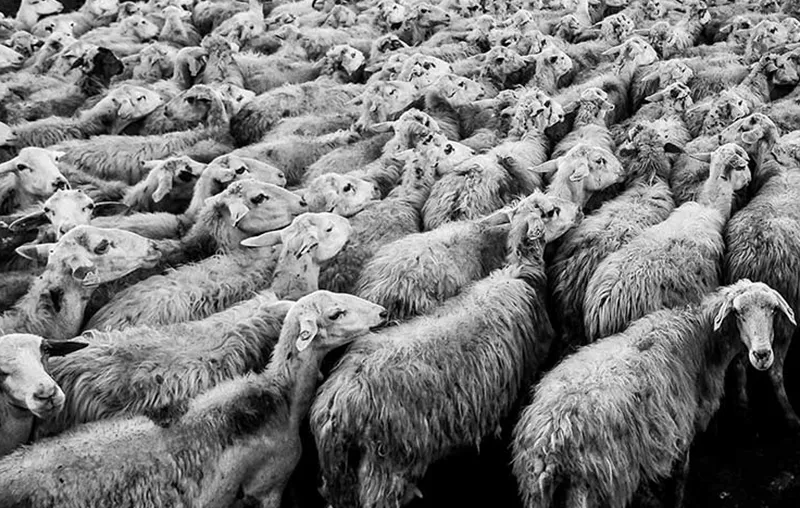
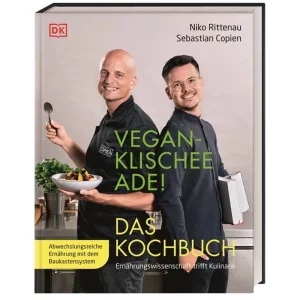

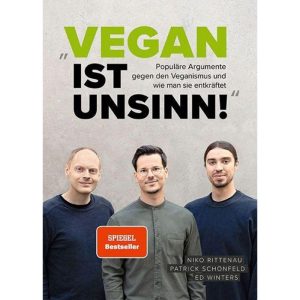

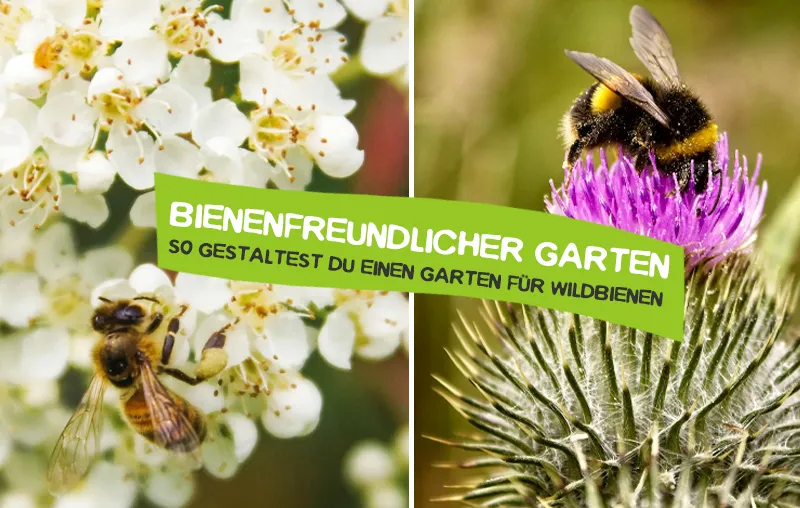


Thank you for the valuable information. One thing I have learned here in any case: we must LOOK. And then each of us must draw the consequences for ourselves!
Hello Marianne!
Thank you for your feedback! Look and act, exactly 🙂
Happy Easter Monday,
Christoph
Comments are closed.